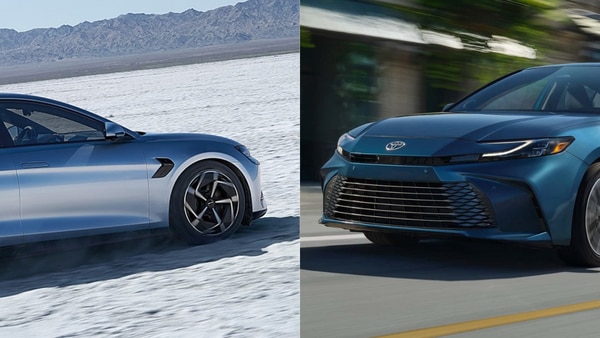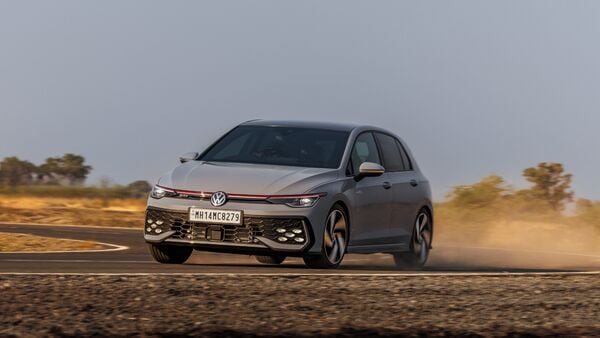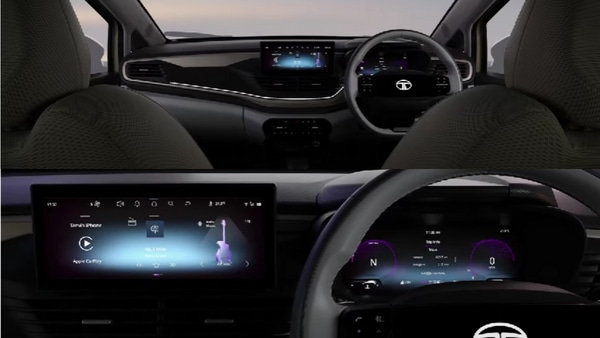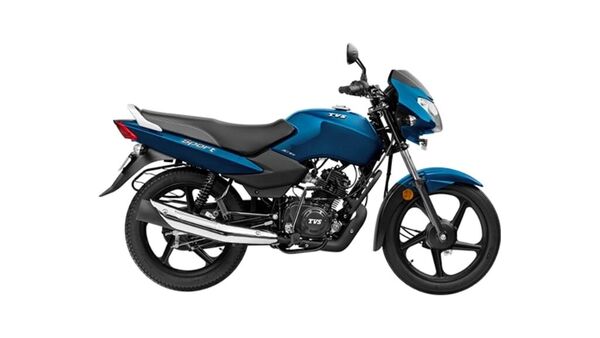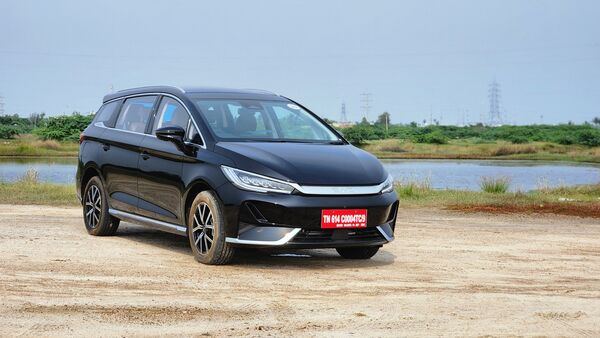
BYD eMax 7 India drive review: What does this electric car for large families deliver?
6 months ago | 5 Views
The Indian auto market is one of the toughest in the world. Manufacturers must cater to the unique and highly specific needs of Indian customers, a challenge on its own. But for brands competing in a segment dominated by a cult favourite, the odds are stacked even higher. In categories where the Toyota Innova reigns, for example, competitors often find themselves struggling to make a mark—or, in many cases, don’t enter the market at all. Well BYD eMAX 7 is here to change the notion.
The Chinese new energy vehicle maker BYD is determined to challenge this status quo, despite the hurdles. BYD, the world’s largest electric vehicle manufacturer, is going up against the Innova with an electric vehicle. To put this challenge into perspective, Toyota sold more Innovas in FY24 than the total number of electric passenger vehicles sold in India during the same period.
BYD’s first passenger vehicle in India, the e6, has managed to capture the attention of core Innova customers. Initially offered only to fleet operators, the e6 was eventually made available to private buyers due to growing interest. Since its 2021 launch, BYD has sold approximately 1,700 units of the e6, with 30 percent going to private customers. However, one key issue remained: the e6 lacked the premium feel expected at its price point.
Listening to customer feedback, BYD has now introduced the eMAX 7, a successor to the e6, aiming to address these concerns. BYD describes the eMAX 7 as a true evolution of the e6—but does it live up to the claim? Let’s take a closer look.
BYD eMAX 7 review: Refining the face
It all begins with the exterior design. The original e6 was a handsome MPV, but it lacked some premium touches. With the eMAX 7, BYD has focused on addressing these issues, especially as the new model is aimed primarily at private buyers.
The e MAX 7 retains the e6’s overall shape but introduces subtle yet impactful exterior updates, starting with the front fascia. Gone is the e6’s faux grille; instead, the eMAX 7 features a more EV-inspired look with BYD’s signature dragon-face grille and new Crystal Diamond Floating LED headlights. Below, a sleek bumper integrates air vents to cool the powertrain and houses radar for the ADAS system. The bumper also includes a front-facing camera as part of the 360-degree camera system.
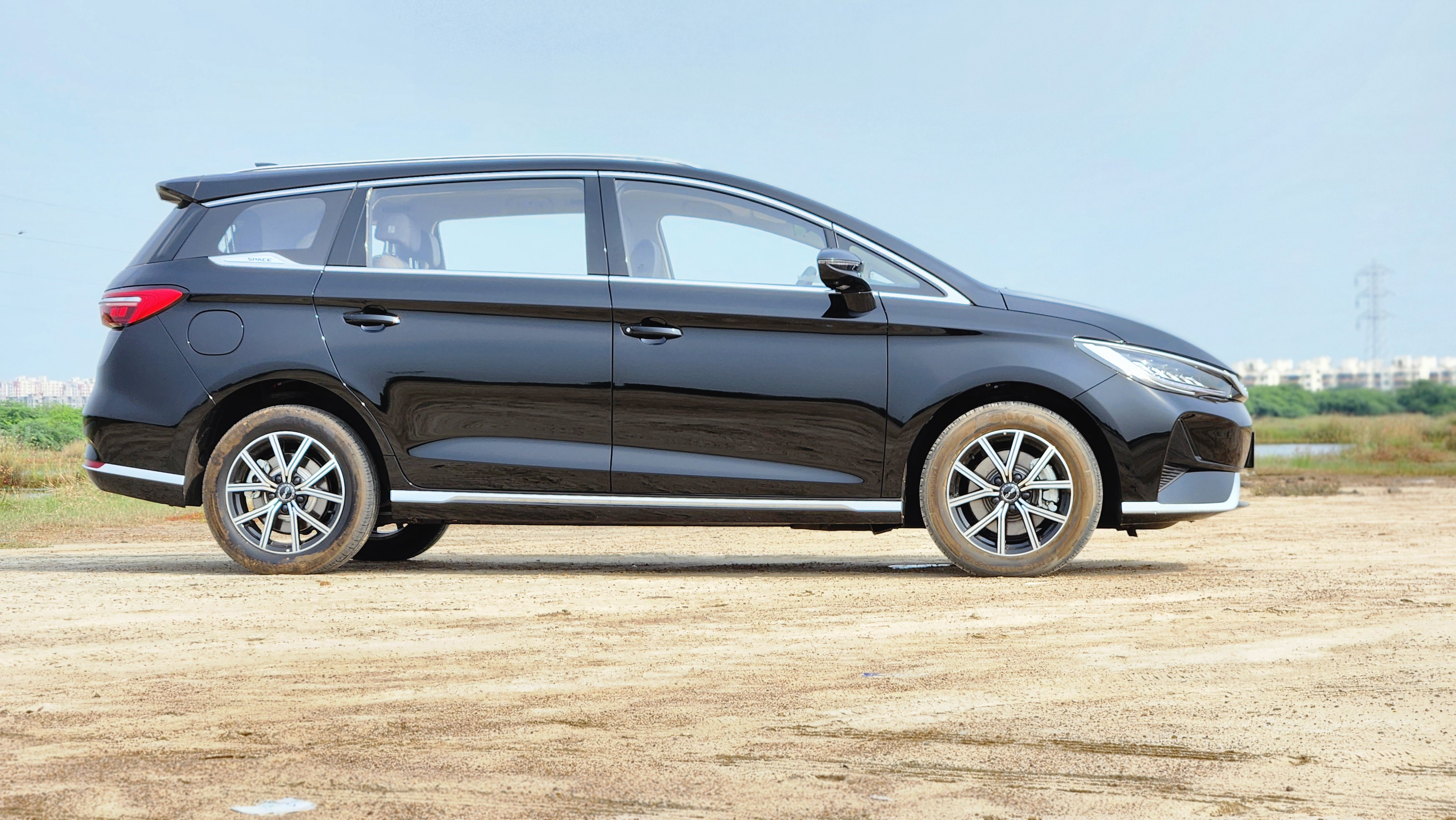
Along the sides, the e MAX 7 retains its MPV profile, but with two noticeable upgrades: a new 17-inch alloy wheel design and the addition of a camera and NFC card reader on the door mirrors. At the rear, the eMAX 7 sports connected LED tail lights with intricate detailing, and the tailgate is now electronically operated for added convenience.
Overall, the BYD eMAX 7 keeps the recognisable teardrop silhouette of an MPV, much like its predecessor, but with refined updates that lend it a distinctly more premium feel. However, the exterior is only half the story—the real experience unfolds inside.
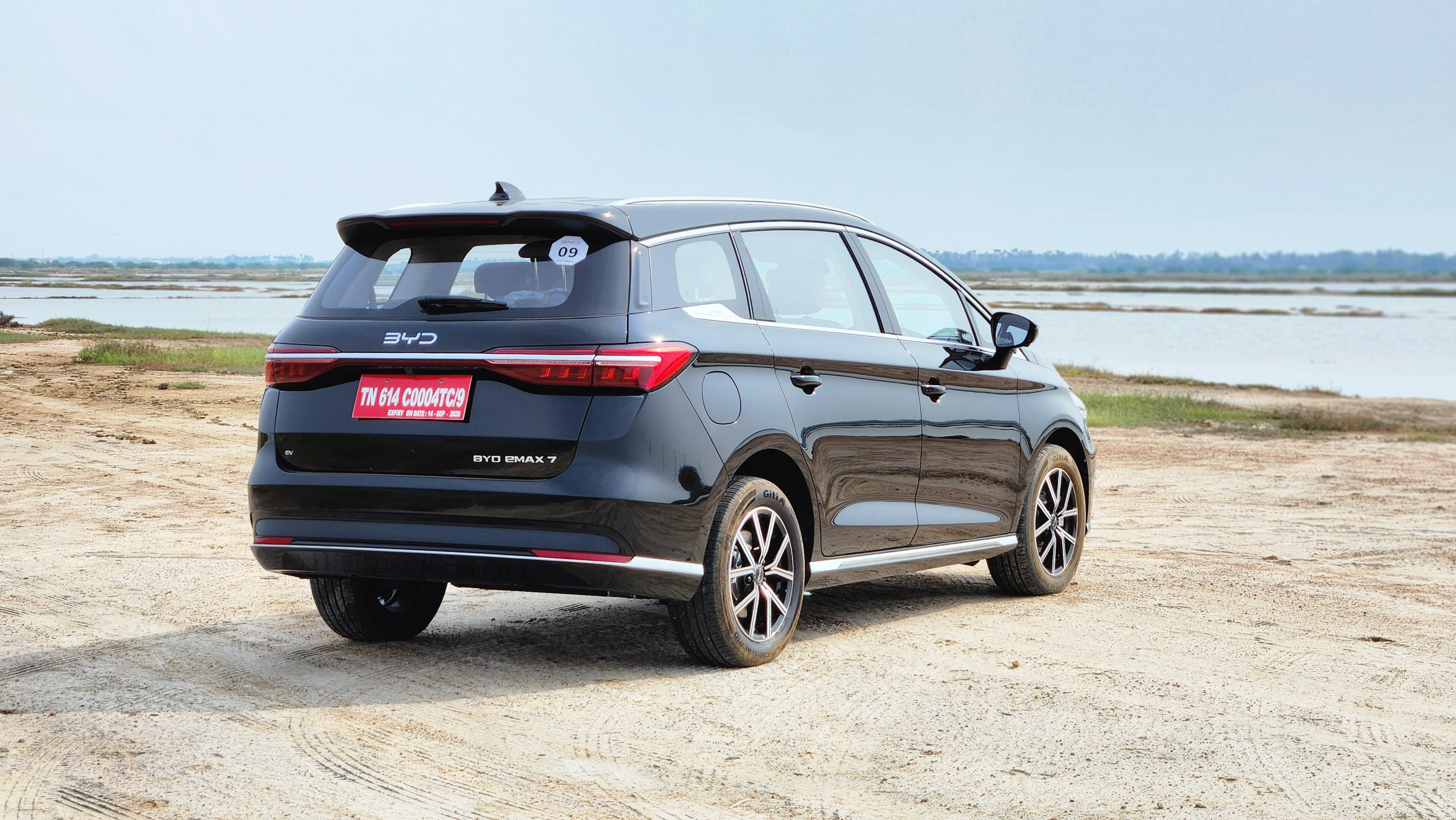
BYD eMAX 7 review: Addressing the elephant in the room
Just like the exterior, the interior of the e6 was rather subdued, primarily due to its all-black colour scheme. With the eMAX 7, however, BYD has redefined this approach. The new MPV features a two-tone black and brown interior, lending a more luxurious and inviting feel to the cabin compared to its predecessor. The new colour theme also opens up the space, making it feel airier—further enhanced by the addition of a panoramic glass roof, a significant upgrade from the e6. This feature is sure to appeal to private buyers, especially since glass roofs are currently in vogue.
While some might wish for an openable glass roof, a fixed design is actually practical for Indian conditions, discouraging unsafe behaviour like peeking out of sunroofs. To address India’s climate, BYD has also included an electronically controllable curtain for the glass roof, a feature even the BYD Seal lacks—showing how BYD listens to its customers.
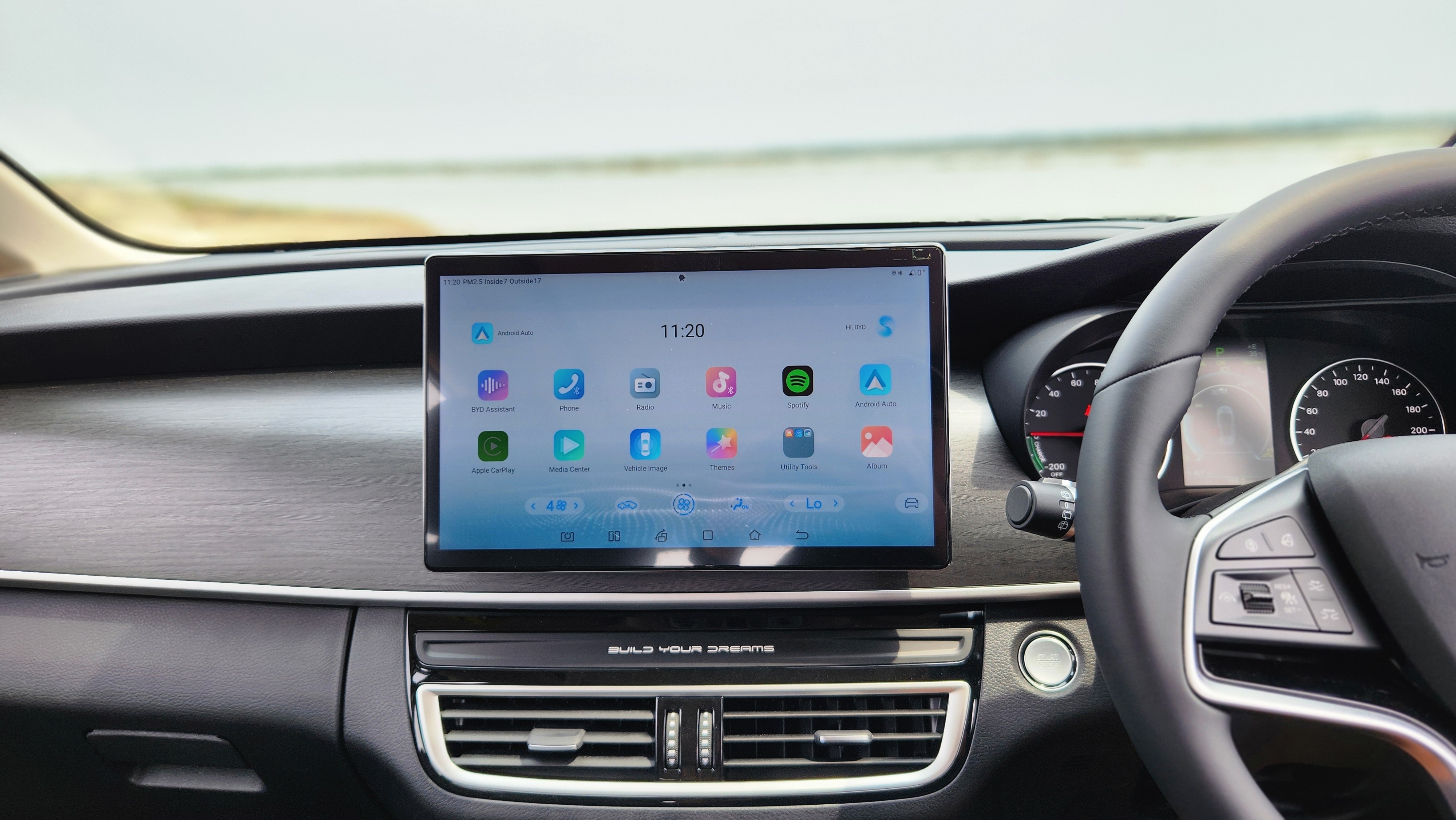
The dashboard features a responsive 12.8-inch touchscreen with BYD’s signature rotating function. It further gets wireless Android Auto and Apple CarPlay connectivity, which is another green mark for the vehicle. However, some essential controls are screen-based, which may be challenging to access while driving. Thankfully, the eMAX 7 has added physical controls for key functions like the fan, defogger, and drive mode selector, along with a new gear selector that feels far more premium than the previous rotary knob.
The front seats add to the sense of refinement, with ventilated, power-adjustable seats offering six-way adjustment for the driver and four-way adjustment for the passenger. The seats are generally comfortable, though the lower back support could be improved; nonetheless, they should serve well for long drives.
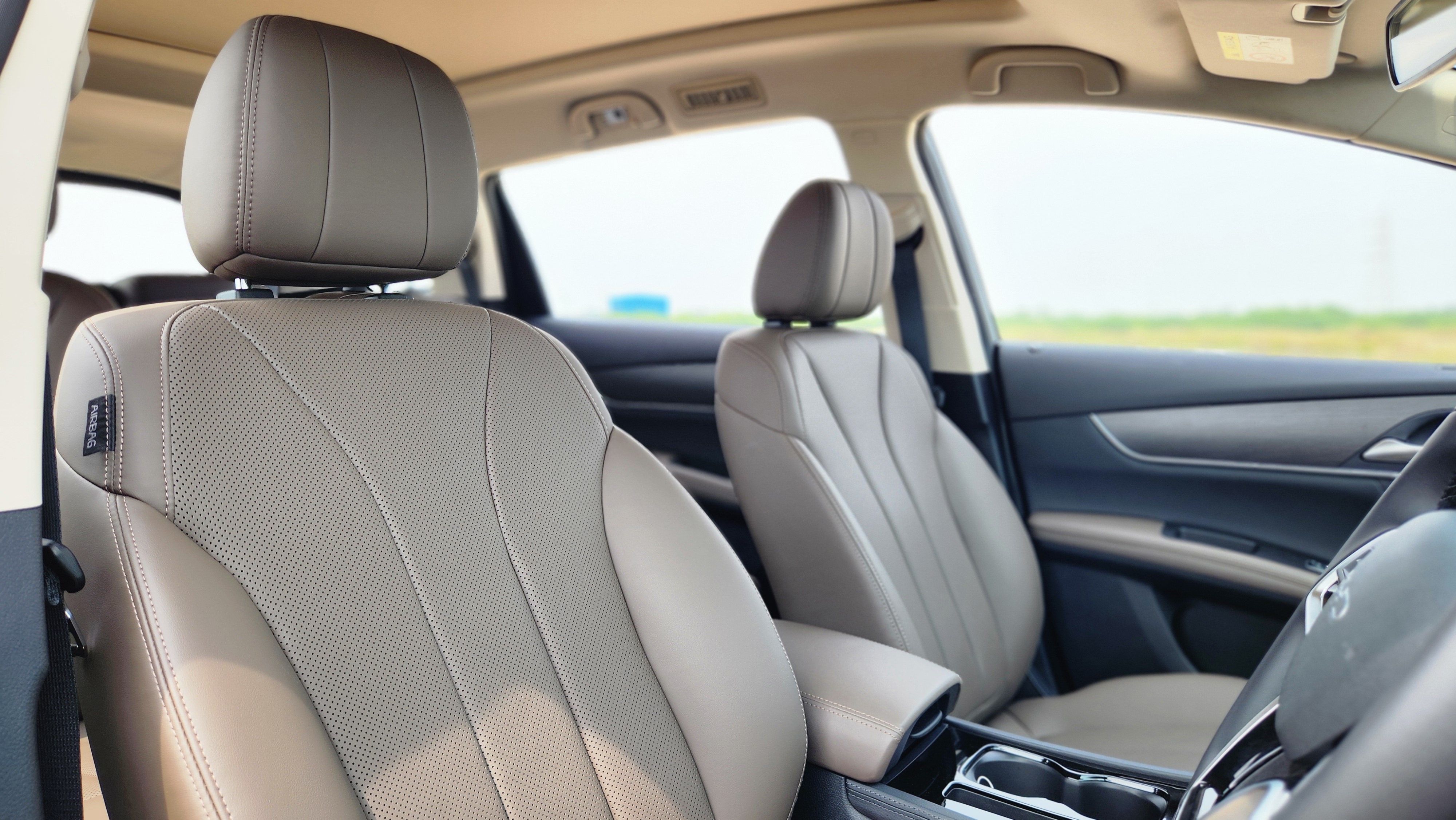
The rear cabin sees a major transformation. Buyers can now choose between a captain's chair or a bench seat in the second row. The captain's chairs are notably plush, offering ample support for the back and thighs, along with generous knee and headroom. The second row is equipped with dual AC vents on each side of the roof, enhancing comfort for rear passengers.
Perhaps the biggest change, however, is the addition of a third row. Given that the e MAX 7 shares dimensions with the e6, this third row is more suited for kids due to limited knee room, though headroom is adequate. Side panels in the third row slightly reduce space, resulting in a somewhat tight and awkward seating position.
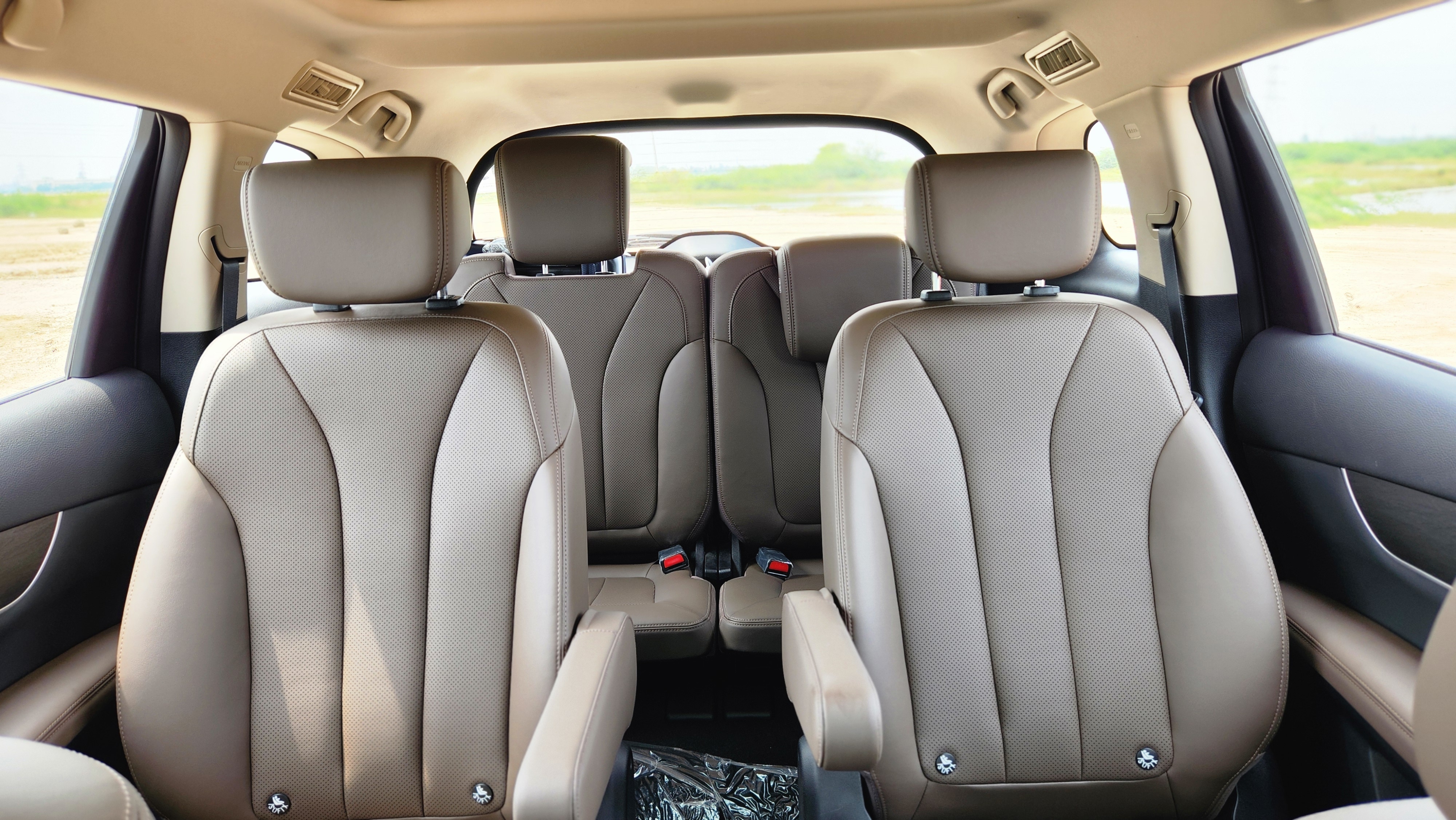
The third row does impact luggage capacity when all seats are up, leaving 180 liters of boot space—enough for two cabin-size suitcases and a few backpacks. With the third row folded, the boot space expands to 580 liters, and folding down the second row (in the seven-seater version) provides even more room, turning the eMAX 7 into a mini camper.
The eMAX 7 can actually be used as a mini camper not just because of the space but also the tech available. It gets vehicle load functionality which allows the vehicle to act as a power source for appliances like projectors, coffee machines and what not.
With these new additions, the eMAX7 is definitely a more premium offering than its predecessor. But what about the driving experience? Has BYD addressed the e6's major shortcoming?
BYD eMAX 7 review: Moving people
The eMAX 7 now delivers twice the power of the e6, with the top-end Superior trim producing 201 bhp and 310 Nm of torque, while the Premium variant offers 161 bhp with the same torque. Range has also improved significantly, with the Superior’s 71.8 kWh battery offering up to 530 km, and the Premium’s 55.4 kWh battery delivering around 420 km on a full charge.
On paper, these upgrades are impressive, but the real-world experience falls a bit short. BYD has tuned the eMAX 7’s motor for smooth, linear power delivery—similar to the chauffeur-oriented e6. While this setup may work for fleet customers, the e MAX 7 is aimed at private buyers, who might prefer a more responsive drive. Despite the boost in power, the eMAX 7 lacks the swift, effortless acceleration typical of EVs, even in Sport mode, making the driving experience feel somewhat detached.
Also watch: BYD eMax 7 review | e6 gets fancy | Check price, range and features
The eMAX 7 offers three drive modes—Eco, Normal, and Sport—yet regardless of the mode selected, acceleration remains very linear. Driving it almost feels like operating an appliance, with no real dynamism to the experience.
On the positive side, the eMAX 7 offers a plush and well-balanced ride, making it comfortable even with a full load of passengers. Our test vehicle achieved approximately 75 percent of its claimed range, which is respectable. Noise isolation within the cabin is generally good, although some road noise seeps in through the front wheel arches.
BYD eMAX 7 review: Should it be your next vehicle?
The eMAX 7 makes significant strides over the e6, especially in terms of the premium feel it offers. BYD has also priced it competitively. The entry-level Premium trim of the e MAX 7 starts at ₹26.90 lakh—lower than the e6—while the top-end Superior trim with a seven-seat configuration is priced at ₹29.90 lakh, around the same as the e6. This pricing strategy meets the typical expectations of Indian consumers who look for upgraded design, new tech, and—when it comes to EVs—improved range and battery performance, all without an increase in price.
However, in terms of driving experience, the eMAX 7 accomplishes the core purpose of providing a comfortable ride from point A to point B. Yet, for those intending to drive it themselves, the experience may feel a bit too detached, lacking the engaging feel some drivers prefer.
One major limitation remains: the availability of the eMAX 7 in India. Like the e6, it is not homologated for the Indian market, which restricts BYD to a cap of 1,500 units per year.
Overall, the eMAX 7 is a marked improvement over the e6 and brings BYD’s electric MPV lineup closer to competing options. However, calling it a full evolution over the previous model might be a stretch. Still, for anyone considering a premium MPV, the eMAX 7 is certainly worth shortlisting.
Read Also: Jaguar E-Type reborn. Here's how this timeless icon gets a modern twist
HOW DID YOU LIKE THIS ARTICLE? CHOOSE YOUR EMOTICON !
#


